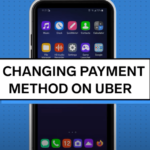This article will explain What Business Category Is A Podcast? This is a question that has been gaining attention as podcasts continue to rise in popularity. A podcast is a type of digital media that falls under the category of online broadcasting or streaming. It can be a form of entertainment, education, or even a business tool. In this article, we will delve into the various aspects that define the business category of a podcast.
Key Takeaways
- A podcast is a type of digital media that falls under the category of online broadcasting or streaming.
- Podcasts can serve various purposes, including entertainment, education, news, and business.
- Monetization strategies for podcasts include sponsorships, listener support, and advertising.
- The audience for podcasts is diverse and can be targeted based on content and format.
- The future of podcasts includes the rise of smart speakers and video podcasts.
What Business Category Is A Podcast?
A podcast generally falls under the “Digital Media” or “Entertainment” business category. It can also be categorized as “Education” if it primarily serves educational purposes.

The Purpose Of Podcasts
Podcasts serve a multitude of purposes. They can be purely for entertainment, focused on news, journalism, or current events. Some podcasts are dedicated to business and entrepreneurship, offering advice, tips, strategies, and guidance for listeners.
Types Of Podcast Categories
Podcasts come in a variety of flavors, each serving a different purpose and targeting a specific audience. Understanding these categories can help both creators and listeners find what they’re looking for. Here’s a breakdown of some of the most common types of podcast categories:

Entertainment Podcasts
These podcasts aim to entertain the listener. They can be narrative-driven, focusing on storytelling, drama, or comedy. Popular sub-genres include true crime, horror, and comedy skits.
- Example: “The Adventure Zone” is a podcast that falls under this category, offering a mix of storytelling and humor.
Educational Podcasts
Educational podcasts aim to inform or teach the listener about a specific subject. These can range from academic topics like history or science to more practical subjects like personal finance or health.
- Example: “Stuff You Should Know” is an educational podcast that covers a wide range of topics from history to science.
News And Journalism Podcasts
These podcasts focus on current events, offering in-depth analysis, interviews, and reporting. They can be daily, weekly, or even monthly, depending on the news cycle.
- Example: “The Daily” by The New York Times offers a deep dive into current news stories.
Business And Finance Podcasts
These podcasts are tailored for professionals and entrepreneurs. They offer advice, strategies, and insights into various industries. Topics can range from marketing and sales to leadership and personal development.
- Example: “The Tim Ferriss Show” explores strategies and tactics for improving your life, as well as the lives of your listeners.
Technology Podcasts
Tech podcasts focus on the latest trends, products, and advancements in the technology sector. They can be highly specialized, focusing on a particular aspect of technology, like cybersecurity or artificial intelligence.
- Example: “Reply All” is a podcast about the internet that is actually an unfailingly original exploration of modern life and how to survive it.
Health And Wellness Podcasts
These podcasts focus on physical and mental well-being. Topics can range from nutrition and exercise to mental health and mindfulness.
- Example: “The Happiness Lab” focuses on psychological research and real-world applications to boost happiness.
Sports Podcasts
Sports podcasts cover everything from game recaps and player interviews to predictions and analyses. They can focus on a specific sport, team, or even athlete.
- Example: “Pardon My Take” is a comedic sports analysis podcast.
True Crime Podcasts
These podcasts delve into real-life crimes, often providing a detailed analysis of the events, suspects, and investigations. They have gained immense popularity in recent years.
- Example: “Serial” is a podcast that brought the true crime genre into mainstream popularity.
Understanding these categories can help you find the right podcast for your interests or even help you decide what kind of podcast you might want to create.
Who Is The Audience for Podcasts?
Podcasts can appeal to a wide range of audiences. Some are aimed at specific age groups or genders, while others target a particular demographic. The format of a podcast can also impact its audience.

Audience Targeting Strategies
- Demographic Targeting: Podcasts can be designed to appeal to specific age groups, genders, or interests.
- Format-Based Targeting: The style of the podcast, whether it’s interview-style or solo host, can attract different types of listeners.
Monetization Strategies for Podcasts
Podcasts can make money through various channels, including sponsorships, listener support, and advertising. Some are produced by media companies or networks, which often have larger budgets.
Types of Monetization
- Sponsorships: Partnering with companies to promote their products.
- Listener Support: Asking listeners to donate or become members.
- Advertising: Including ads within the podcast content.
What’s The Future Of Podcasts?
The future of podcasts is incredibly promising, with several trends and technological advancements shaping the way we consume and produce this form of digital media. Here are some key areas to watch:

Rise of Smart Speakers
Smart speakers like Amazon’s Alexa and Google Home are becoming increasingly popular. These devices offer a hands-free, voice-activated way to listen to podcasts, making it easier for people to integrate podcasts into their daily routines, such as while cooking or doing household chores.
- Impact: This trend could lead to a surge in podcast listenership as it becomes more accessible and convenient to tune in.
Video Podcasts
While podcasts have traditionally been audio-focused, the rise of video podcasts is undeniable. Platforms like YouTube are becoming popular outlets for podcasters who want to reach a broader audience by offering both audio and visual content.
- Impact: Video podcasts can provide a more engaging experience, potentially attracting a different demographic of viewers who prefer visual content.
Personalization and AI
As Artificial Intelligence (AI) technology advances, we can expect more personalized podcast recommendations based on listener behavior and preferences. This could make discovering new podcasts easier and more tailored to individual tastes.
- Impact: Personalization could lead to increased listener engagement and loyalty, benefiting both podcast creators and platforms.
Monetization Models
The future may see a shift in how podcasts are monetized. While advertising is currently the most common revenue stream, subscription models and listener donations are gaining traction.
- Impact: This could provide podcasters with more financial stability and freedom to produce high-quality content.
Niche Podcasts
As the podcasting landscape becomes more saturated, creating content for niche audiences will become increasingly important. Specialized topics can attract a dedicated following, even if the overall audience size is smaller.
- Impact: Niche podcasts can become authoritative voices in their respective fields, attracting sponsorship deals and collaborations.
Interactivity
Emerging technologies may allow for more interactive podcasts, where listeners can engage in real-time, ask questions, and even influence the direction of the content.
- Impact: Interactivity can create a more dynamic and engaging listener experience, setting the stage for community-building around podcasts.
Global Expansion
Podcasting is becoming more global, with an increasing number of non-English podcasts and platforms catering to diverse linguistic and cultural audiences.
- Impact: This will make podcasts more inclusive and accessible, opening up new markets and opportunities for creators.
Diving Deeper Into The Business Category Of Podcasts

The Versatility Of Podcast Categories
Podcasts can fit into a variety of business categories depending on their content and purpose. For instance, podcasts focused on entertainment, pop culture, movies, TV shows, and music might fall under the media and entertainment category. On the other hand, those that focus on news, journalism, and current events could be categorized under journalism.
The Role of Content in Categorization
- Entertainment Podcasts: Often narrative-driven, capturing listeners’ attention.
- Journalism Podcasts: Produced by news organizations, providing in-depth coverage of issues.
Legal Considerations for Podcasters
Starting an LLC for your podcast is not always necessary, but it can provide some legal protection for your personal assets in case of any legal issues. However, it’s crucial to consult with a lawyer or financial advisor before making any decisions.
Why An LLC?
- Legal Protection: Safeguards your personal assets.
- Tax Benefits: Potential for tax advantages.
What Kind Of LLC Do I Need For A Podcast?
For a podcast, a general LLC (Limited Liability Company) would usually suffice. However, consult with a legal advisor to determine the best structure for your specific needs.
Podcasts on Social Media Platforms
On Instagram, podcasts generally fall under the “Entertainment” category. However, Instagram is primarily a visual platform, so podcasters may need to get creative with their content to engage their audience effectively.
Strategies For Instagram
- Visual Content: Use images and short video clips to promote episodes.
- Interactive Polls: Engage your audience by asking questions or seeking opinions.
What Business Category Is A Podcast On Instagram?
Instagram doesn’t have a specific “podcast” business category. However, you can list your podcast under categories like “Media,” “Entertainment,” or “Education,” depending on the content.

The Role of Frequency in Podcasting
The frequency of podcast episodes can also play a significant role in its categorization. For instance, daily news podcasts would naturally fall under the journalism category, while a weekly storytelling podcast might be considered entertainment.
Frequency Matters
- Daily Podcasts: Often news-oriented, targeting a regular audience.
- Weekly/Monthly Podcasts: More likely to be entertainment or educational.
Podcasts and Accessibility
With the rise of smart speakers like Amazon’s Alexa and Google Home, podcasts need to adapt their content for these voice-activated devices to remain accessible to a broader audience.
Adapting to Voice-Activated Devices
- Transcripts: Providing written content for those who prefer reading.
- Voice Commands: Optimizing for voice search and commands.
How To Categorize Your Podcast?
Categorizing your podcast is crucial for its discoverability and reach. Platforms like Apple Podcasts offer more than 100 categories and subcategories where you can list your podcast.

You can choose up to two categories, a primary and a secondary one, and even add subcategories if they are relevant to your show. This categorization not only helps your podcast appear in relevant searches but also in personalized recommendations for listeners.
How To Find The Best Business Category For Your Podcast?
To find the best business category for your podcast, consider the main themes and topics you’ll be covering. If your podcast is about entrepreneurship, then the “Business > Entrepreneurship” category would be suitable. Always aim for a category that closely aligns with your content to increase the chances of reaching the right audience.
Benefits Of Categorizing Your Podcast
Categorizing your podcast has several benefits. It helps in:
- Improving discoverability on platforms like Apple Podcasts.
- Appearing in personalized recommendations.
- Being considered for editorial curation.
- Influencing which charts your podcast will appear on.
What Type Of Business Is A Podcast?
A podcast can be considered a form of digital media business. It falls under the broader categories of “Entertainment,” “Media,” or “Education,” depending on its content.

What Is The Category Of Podcast?
Podcasts can belong to various categories such as Arts, Business, Comedy, Education, Fiction, Government, History, Health & Fitness, and many more. The category should reflect the main content and theme of your podcast.
Does A Podcast Count As A Business?
Yes, a podcast can count as a business, especially if it generates revenue through sponsorships, advertisements, or merchandise sales.
What’s The Business Category Of A Podcast?
In business terms, a podcast generally falls under the “Digital Media” or “Entertainment” industry. It can also be categorized under “Education” if it primarily serves educational purposes.

How Do Podcasts Make Money?
Podcasts can make money through various channels such as:
- Sponsorships and Advertisements
- Listener Donations and Crowdfunding
- Merchandise Sales
- Premium Content Subscriptions
Each of these methods has its own pros and cons, and the effectiveness can vary depending on the podcast’s audience size and engagement levels.
Conclusion
In summary, the business category of a podcast can be quite versatile, depending on various factors such as content, frequency, and even the platforms used for distribution. As the podcasting landscape continues to evolve, understanding these nuances becomes crucial for both creators and consumers alike.
People Also Ask
How do you categorize a podcast?
Podcasts can be categorized based on their content, purpose, format, and frequency. For instance, a podcast focusing on providing business advice could be categorized as a business podcast, while one featuring interviews could be considered an interview-style podcast.
What type of service is a podcast?
A podcast is a form of media that offers on-demand audio content to listeners. It can be used for various purposes, including entertainment, education, or as a marketing tool for businesses. Podcasts are generally free for listeners and are supported by advertising or sponsorships.
Are podcasts considered a business?
Yes, podcasts can be considered a business if they are monetized through advertising, sponsorships, or listener support. Many podcasters start their own businesses around their podcast, offering related products or services to their audience.
Should I start an LLC for a podcast?
Starting an LLC for your podcast is not always necessary but can provide some legal protection for your personal assets in case of any legal issues. It’s essential to consult with a lawyer or financial advisor before making any decisions.
A multifaceted professional, Muhammad Daim seamlessly blends his expertise as an accountant at a local agency with his prowess in digital marketing. With a keen eye for financial details and a modern approach to online strategies, Daim offers invaluable financial advice rooted in years of experience. His unique combination of skills positions him at the intersection of traditional finance and the evolving digital landscape, making him a sought-after expert in both domains. Whether it’s navigating the intricacies of financial statements or crafting impactful digital marketing campaigns, Daim’s holistic approach ensures that his clients receive comprehensive solutions tailored to their needs.









